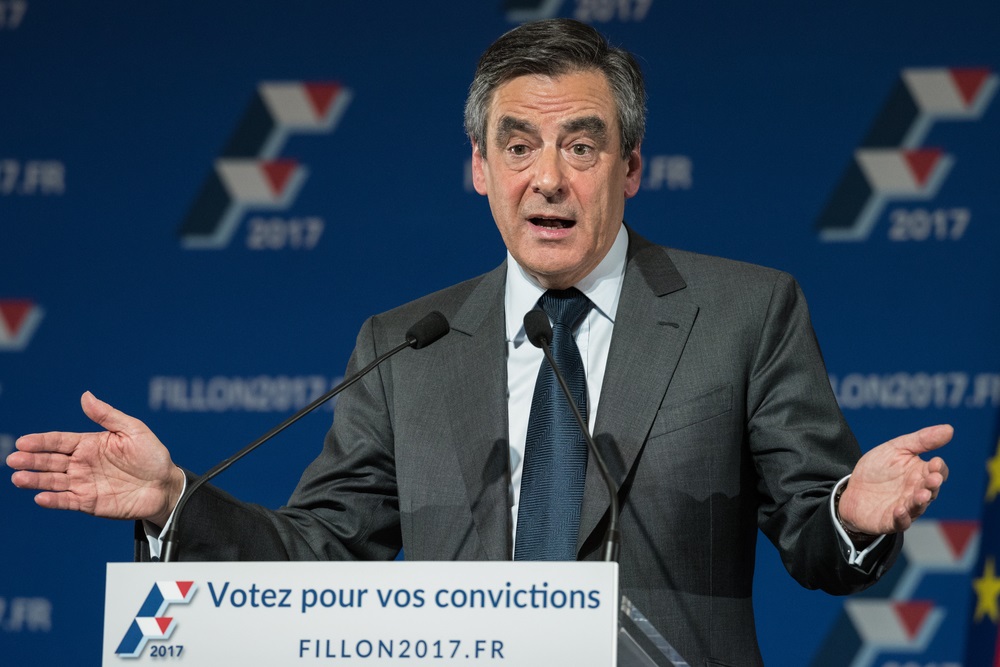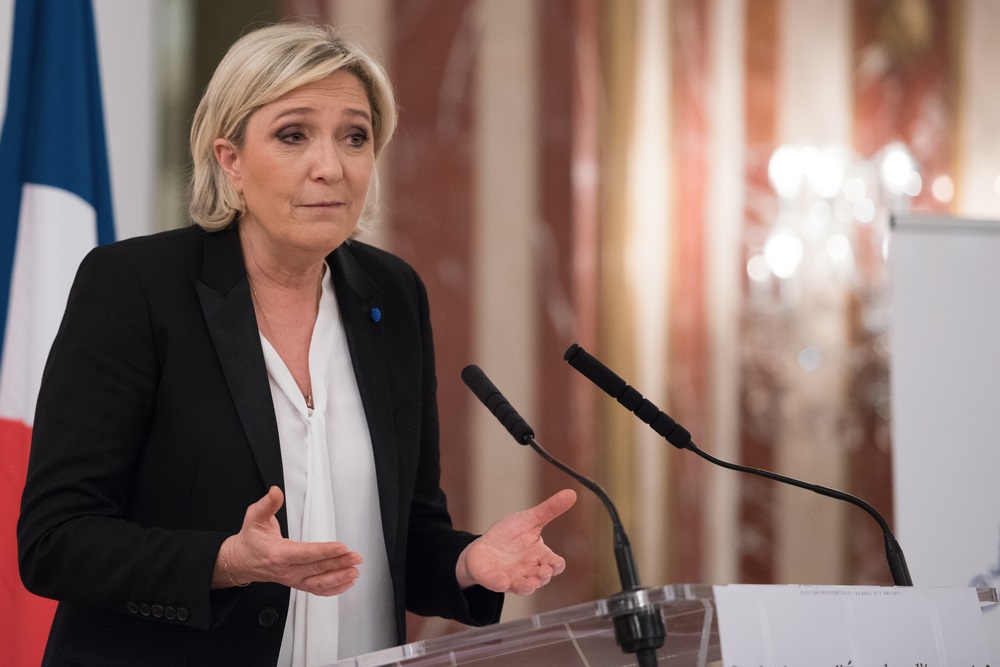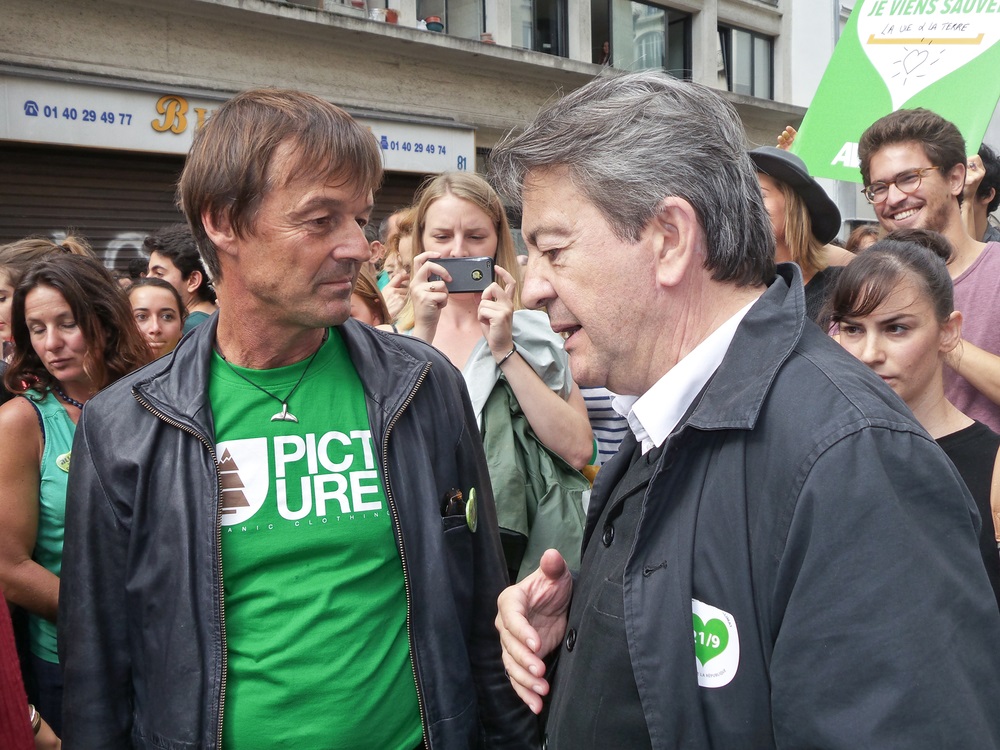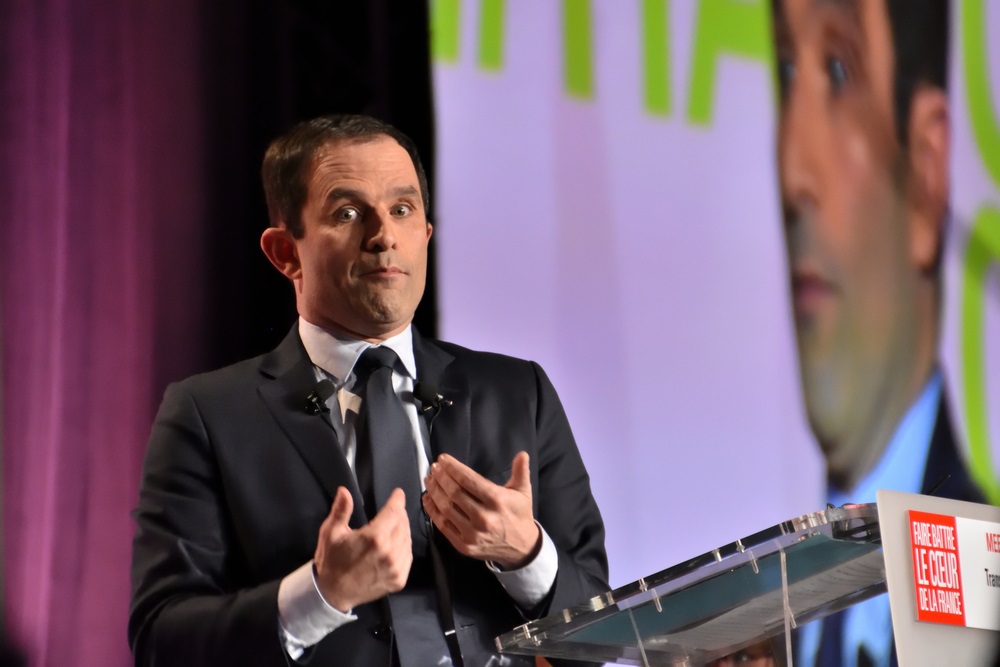Fair Blows the Wind for France (Or maybe not…)

France goes to the polls this Sunday for the first round of a presidential election of existential importance – both for France and for the European Union as a whole. If La Belle France has a bout of flatulence (the triumph of the far left and the far right candidates) there’s going to be an unholy stink across the European markets next week…
Most French people seem to agree that France is a country that is in desperate need of reform; but few can agree on what form that reform should take.
France is a wealthy country with more Fortune-500 companies than any other except for the USA, China and Japan[i]. It is a leader in nuclear technology, transportation and aerospace. Its manufacturing sector is highly competitive. Most French still enjoy a congenial lifestyle which many – not least the British – envy. Its healthcare system is amongst the best in the world and its welfare and pension systems are extraordinarily generous by Anglo-Saxon standards. France remains, behind Germany, the engine of European integration: and in many ways exerts more influence over the machinery of the European Union in Brussels than the Germans.
But it suffers from high unemployment, highly inflexible labour markets, a crushing and deteriorating national debt, high taxation and pernicious bureaucracy. It is not a good country in which to launch a start-up company, get credit, buy and sell property or to invest. Small businessmen are in a constant state of war with the tax man. In the World Bank Ease of Doing Business rankings it comes out at number 29 as compared with 7 for the UK. Many of its most talented young people are voting with their feet and leaving – not least for London.
French savers are reportedly moving their cash to Luxembourg. A sign of the nervousness in the financial markets is that the French government 10-year bond is now yielding about 75 basis points more than its German equivalent. This spread could widen much further in the weeks to come. Will France’s prospects look any different after the second round of the presidential election on 07 May?
The French exception
In a forthcoming piece I want to explain why French political culture is fundamentally different, not just from les Anglo-Saxons but from their European neighbours. Here, I’ll just say that France is the last communist country in Europe. By that I don’t mean that the system of government is communist but that the mind-set of its intellectual elite is overwhelmingly Marxist. It is not only acceptable for a university lecturer or doctor to have Trotskyist leanings – it is expected. All political parties – even on the far right – have anti-market instincts.
The last three personalities to have occupied the presidency – Jacques Chirac (1995-2007), Nicolas Sarkozy (2007-12) and François Hollande (2012-17) all tried in their different ways to take France in a more pro-market direction. All are now widely regarded as failures. All of the presidential candidates must appease the left.
The Line-up
There are only five names that any Anglophone investor need remember out of a total of 11 candidates.
What are their programmes? The French don’t talk about election manifestos as the British do, perhaps because they well understand that policies evolve in the light of circumstance. They vote for a candidate’s ideology rather than for his or her specific promises. The specific details of the various candidates’ programmes have changed with bewildering rapidity during the course of the campaign.
François Fillon: Catholic France fights back
Monsieur Fillon was the out-and-out favourite to win until last November when the revelations began that his family have been on the political payroll for years. Given the level of opprobrium directed against him it is amazing that he is still in the race at all.
The candidate of the Republican Party was President Nicolas Sarkozy’s Prime Minister from 2007-12. Fillon, now 63, has occupied numerous ministerial portfolios under various presidents.
Almost alone in the race, Fillon is a fiscal realist. A few months after taking office as Prime Minister, he declared that he was presiding “over a state that is bankrupt financially…which for 15 years has been in chronic deficit…that has not voted a balanced budget for 25 years”. He then committed publicly to bring the state budget into balance by the end of Nicolas Sarkozy’s presidency. Of course, he failed[ii]. And it’s not clear how he is going to balance France’s books this time.

Monsieur Fillon has promised to cull 500,000 civil servants – a section of society that enjoys almost reverential social status in France where even a primary school teacher is designated a civil servant. This policy has probably lost more votes than it gained.
In a society which vaunts laïcité (secularism) as its national doctrine, Fillon is proud to identify himself as a church-going Catholic. He has danced gingerly (as has Macron) around the issue of France’s disaffected Muslim population, a small minority of which has been radicalised with awful consequences for state security.
Fillon has consistently polled third in the race – and now fourth – so it would be a surprise if he gets into the second round.
Marine Le Pen: Angel or demon?
Marine Le Pen has worked assiduously to “de-toxify” the Front National since she inherited the leadership of the party from her father, the veteran Jean-Marie Le Pen, in 2011. With some success according to her admirers – people no longer regard the Front National as a party of soft-on-Hitler holocaust deniers with unpleasant social attitudes. And that is a kind of progress. The daughter’s party is not the father’s.
Marine Le Pen has prosecuted a career in the European Parliament as a dissident MEP in the pugilistic tradition of Nigel Farage, and is certainly not on Christmas card terms with J-C Juncker and company. But she has never wielded executive authority.

Actually, Marine, who ran a weak campaign in 2012, has this time presented herself as a pragmatist. Her argument that France should regain control of its borders so as to control the flow of migrants into the country is, in the view of many, entirely reasonable. She wants to cut immigration drastically, to withdraw from the Euro and to hold a referendum on France’s membership of the European Union.
Like all right wingers she wants to beef up the security forces and the armed forces. She has said some unkind things about France’s Muslim population and how they must integrate into French life – but it is not clear how she proposes to address the grievances of young French Muslims. (Getting them into work might be a start.)
Madame Le Pen is consistently polling around 24 percent of the vote and is very likely to reach the second round.
Emmanuel Macron: looks and brains may not be enough…
This 39-year old former investment banker (he worked for Rothschild for three years) would be the youngest man ever to become France’s head of state. Although he was only briefly a member of the Socialist Party he was picked by President Hollande to serve as Economy Minister (2014-16).
As far as we can tell Macron is a social democrat who purports to be in favour of a regulated market. In his book Revolution, published in November 2016, Macron presents himself as both a leftist and a liberal. The political party En Marche! (Let’s get going) which he cobbled together last year aims to transcend the left-right divide. On Europe Macron has described himself as neither pro-European, Eurosceptic nor a federalist. Mmmn…

Like Mélenchon he is against the Transatlantic Trade and Investment Partnership (TTIP) – but that is academic since President Trump has already strangled it at birth. To the consternation of nationalists he regards France’s colonial past as a crime against humanity.
Macron has supported Angela Merkel’s open-door immigration policy and yet regards the migrant camps (now burned down) in the Pas de Calais region as an English problem. Like most of the French elite educated at the Ecole Nationale d’Administration he has an Olympian disdain for the English. He has said that the UK outside the EU will become “Guernsey”. While the other candidates have been nuanced on Brexit he has reiterated the Juncker-Verhofstadt line that the UK cannot be give a better deal out than it enjoyed in.
Mélenchon: Trotskyism lives (in France)!
Jean-Luc Mélenchon’s star performance in the presidential TV debate of 04 April caused a surge in his poll ratings to around 18 percent – one point ahead of Francois Fillon according to one poll – which now makes this election a four-horse race.
This is 65-year old Jean-Luc Mélenchon’s second crack at the presidency of France, having first run as an independent socialist in 2012 when he took 11 percent of the vote in the first round. Until 2008 he was a member of the French Socialist Party but quit, claiming that it was insufficiently radical. His programme for this campaign is probably the most radical of any serious French presidential contender ever.
Monsieur Mélenchon wants not only to threaten to pull France out of the EU but out of NATO as well. He promises a €100 billion programme of additional government spending in order to build a “green” economy. Green objectives would be written into France’s constitution. He would phase out nuclear energy and aim for 100 percent of electricity generation to be achieved from renewables.
The French Fifth Republic would be dissolved and replaced by the Sixth Republic with a new constitution. The Senate would be abolished and all citizens would be given the vote from the age of 16.

Like Mr Corbyn in the UK, he favours not just a much higher minimum wage but also a maximum wage – no one in France would be allowed to earn more than €360,000 a year[iii]. He is promising workers higher wages, shorter hours (a four-day, 32-hour week) and six weeks of paid holidays per year with of a lower retirement age of 60.
He proposes to take away the voting power wielded by shareholders and give it to company employees. He will act to prevent further plant closures in economically deprived areas like Lille. He has pledged to raise taxes on inheritance and capital and to outlaw stock options.
On Europe, Monsieur Mélenchon proposes to devalue the Euro – though how a French President could do that is unclear. He says that France will no longer be bound by the European Stability Pact (1997) which caps Eurozone members’ deficit-to-GDP ratio at 3 percent. He wants “to restructure” France’s national debt and to instruct the European Central Bank (ECB) to lend directly to Eurozone governments (which is not crazy).
If the ECB does not play ball then Monsieur Mélenchon offers a Plan B which would be to pull France out of the Euro, to impose capital controls between France and other EU states and to stop French contributions to the EU budget. (Hard-edged Brexiteers in the UK would love that.)
Finally, Monsieur Mélenchon would call the banks to order. He would ban them from operating in tax havens and introduce some kind of transaction tax.
Mélenchon isn’t just garnering support from the traditional left but also from centrists and greens who have come to the conclusion that France needs a radical break with the past. It is quite possible he will get through to the second round.
Benoît Hamon: back of the pack
The official candidate of the Parti Socialiste and therefore the anointed successor to President Hollande is 49-year old Benoît Hamon. In every presidential election except that of 2002 – when Jean-Marie Le Pen fought Jacques Chirac in the second round[iv] – a socialist has gone through to the final. This time it is most unlikely. Monsieur Hamon’s showing in the opinion polls has fallen to derisory levels. Even he has all but admitted that he cannot win, saying on 08 April that he would vote for Monsieur Mélenchon in the second round.

Hamon’s flagship policy was the introduction of a Universal Basic Income which I discussed in February. We can assume that Monsieur Hamon’s expected eight percent or so of the vote would go to Monsieur Mélenchon in the second round. But it now seems that in the final days Hamon is rapidly leeching support to Mélenchon.
Second round scenarios – investors take note
If the final round is to be between Monsieur Mélenchon and Madame Le Pen we can expect a bloodbath on the European bourses next Monday (24 April). I’d say the chance of that happening is somewhere around 15 percent – unlikely, but high enough to be a major worry.
The most likely scenario is that Le pen and Macron will face one another in the second round, in which case Macron will almost certainly win. But a Macron victory will be a journey into the woods too. He is an untested technocrat without a power base, who has spatchcocked together a programme designed to appeal to everybody but which will probably satisfy no one. It is unlikely that he is a man who will be able to reform France. The new French Revolution will have been postponed.
After months of campaigning, none of the candidates has explained how they would rectify France’s massive structural fiscal deficit, which at this rate will only get worse. That is depressing.
Both Monsieur Mélenchon and Madame Le Pen have promised to give France the choc électrique that it needs to gets its ancient heart racing again. But if either of them wins it will have been the European Union that has been electrocuted.
Post script: news from London
Further to Mrs May’s shock announcement yesterday of a snap general election in the UK on 08 June, Mr Corbyn will be willing on his French analogue more than ever. A good result for Monsieur Mélenchon this Sunday will put wind into Mr Corbyn’s sails…
I’ll be writing about France in my Opportunities in Focus column in the May edition of the Master Investor magazine. I’d like to share why France, whatever its many problems, has a stable of superb world-class companies. If the markets quake in France, that could be a buying opportunity for investors with a medium-term perspective. It’ll be out towards the end of the first week of May.
[i] France had 29 countries in the Fortune Global 500 list for 2016 as against 28 for Germany and 26 for the UK.
[ii] The French budget deficit was 4.8 percent of GDP in 2012 – see: http://www.tradingeconomics.com/france/government-budget
[iii] Most of the British media reports the threshold as €400,000 but his latest video at http://www.francetvinfo.fr/images/videos/ states €360,000.
[iv] Chirac beat Le Pen with 82.2 percent of the vote – the biggest margin ever.
Comments (0)